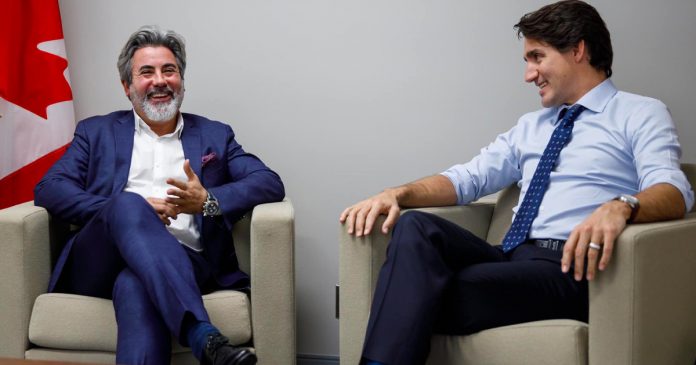The Trudeau government is proposing to have the Canadian Radio-television and Telecommunications Commission (CRTC) impose woke “Equity, Diversity and Inclusion” (EDI) requirements on broadcasters as part of its Sustainable and Equitable Broadcasting Regulatory Framework.
This comes as the government’s controversial internet censorship legislation Bill C-11 received royal assent.
The changes sought by Heritage Canada seek to ensure “the meaningful participation of Indigenous persons in the broadcasting system,” to support “greater inclusion of equity-seeking groups in the broadcasting system,” to redefine Canadian programs and to create “an equitable, flexible and adaptable regulatory framework” among other things.
“The broadcasting system should serve the interests of all Canadians. Part of this is recognizing and overcoming the challenges faced by certain Canadians, including Indigenous persons, Black and other racialized persons, Canadians of diverse ethnocultural backgrounds, members of OLMCs, persons with disabilities, members of 2SLGBTQI+ communities, women, and members of other equity-seeking groups,” reads the government’s regulatory proposal.
As part of its EDI push, the government wants the CRTC to take into account demographic trends when setting expenditure requirements for broadcasters. The latter would include “data concerning the participation of Black and other racialized persons in the Canadian broadcasting system.”
The CRTC would also have to ensure requirements are created to support black, Indigenous and other “equity-seeking” creators.
Equity spending mandates would need to consider “the challenges and obstacles that (groups) face, including systemic racism and the obstacles faced by those whose first language is not an official language.”
Meanwhile, Indigenous spending mandates would need to take account of “the importance of reconciliation with Indigenous peoples and the challenges and obstacles that they face, including those stemming from historical injustices or the legacies of colonialism.”
The CRTC would also be directed to “meaningfully engage with Black and other racialized communities, OLMCs, and other equity-seeking groups regarding support for the creation, availability and discoverability of programming made by members of these communities and groups.”
A tentative reporting requirement would also see the CRTC publish progress made on its EDI agenda.
The CRTC has already mandated EDI for Canada’s state broadcaster, CBC.
As part of the CBC’s license renewal, the CRTC is requiring that CBC dedicate a minimum of 30% of its independent English programming spending to producers who “self-identify” as Indigenous, official language minorities, visible minorities, disabled or LGBTQ.
The percentage of dedicated funds will increase to 35% in 2026.
CBC is also being mandated to track employee demographics, and engage in consultation with “equity-seeking” groups.
In a Jan. 2022 National Post op-ed, former CBC journalist Tara Henley touched on the state broadcaster’s woke EDI agenda, citing it as a reason behind her departure from the network.
“To work at the CBC now is to accept the idea that race is the most significant thing about a person, and that some races are more relevant to the public conversation than others It is, in my newsroom, to fill out racial profile forms for every guest you book; to actively book more people of some races and less of others,” wrote Henley.
It should, however, be noted that Canadian Heritage referred CBC’s broadcasting license back to the CRTC amid 16 petitions in writing, meaning there is a possibility that the CBC’s EDI mandate could be rescinded. It however remains in effect for now.
Bill C-11, which received Royal Assent in April, expanded the CRTC’s regulatory powers under Broadcasting Act to cover all audiovisual content on the Internet, including content on Tik Tok, YouTube, Spotify, and podcast clients.
The Bill has been heavily criticized by many, who have said among other things that it is a censorship bill that will harm content creators.
Canadians have until July 25 to make their thoughts known to the government on the proposed Sustainable and Equitable Broadcasting Regulatory Framework. Social media users and creators and their content would be excluded from the proposed regulation.
Heritage Canada told True North it would not be able to submit a comment in time for publication.






















